Agriculture + Lifestyle
Muscdivine
Posted on September 9, 2024 9:46 AM
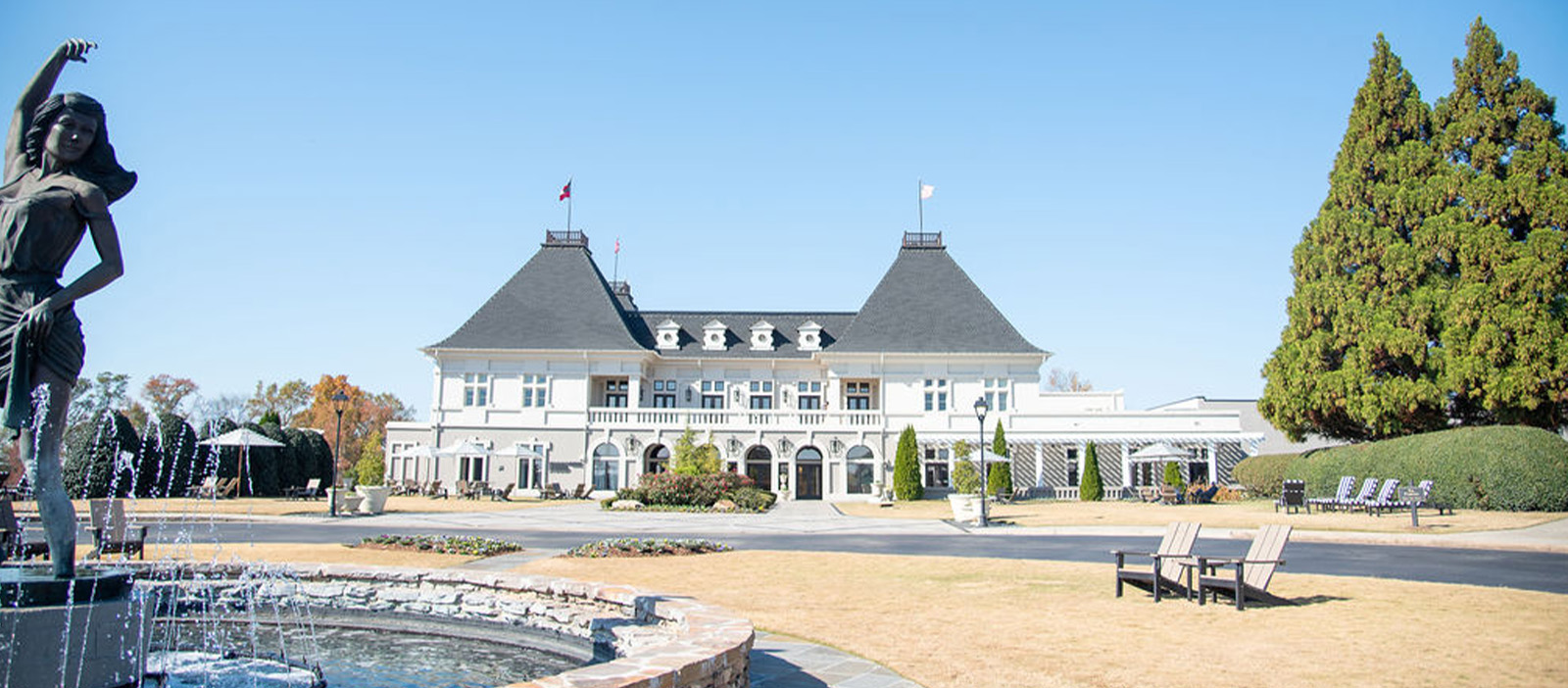
Chateau Elan Winery
Winemaker Simone Bergese, a recent Georgia Farm Bureau member, isn’t native to Georgia — but his grapes are.
Muscadines, known for being thick-skinned and sweet, have been cultivated commercially in the Southeast since the late 1700s. Early varieties were simply plucked from the wild until the University of Georgia (UGA) began what is now the oldest and largest breeding program dedicated to the improvement of the muscadine grape. It started in 1909, and since then has released over 30 cultivars.
From their humble beginnings until now, muscadines have always been used in jams, jellies, pies — and wine.
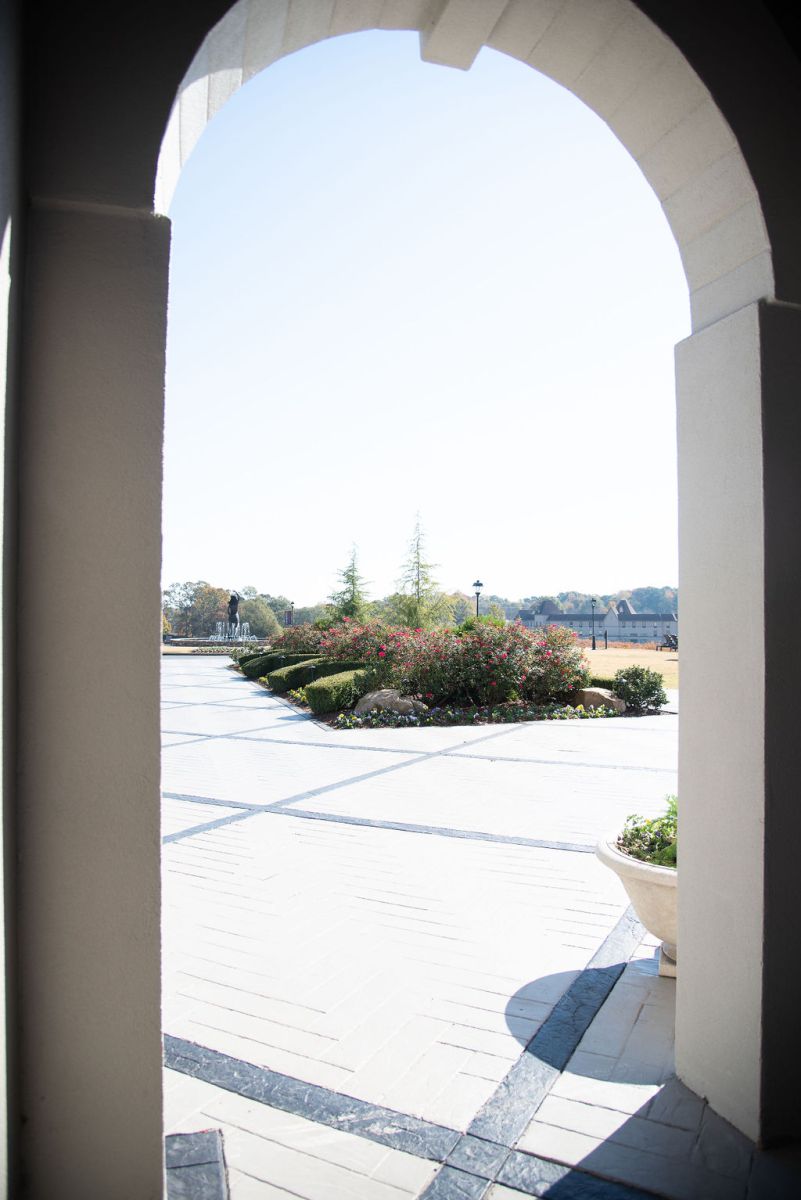
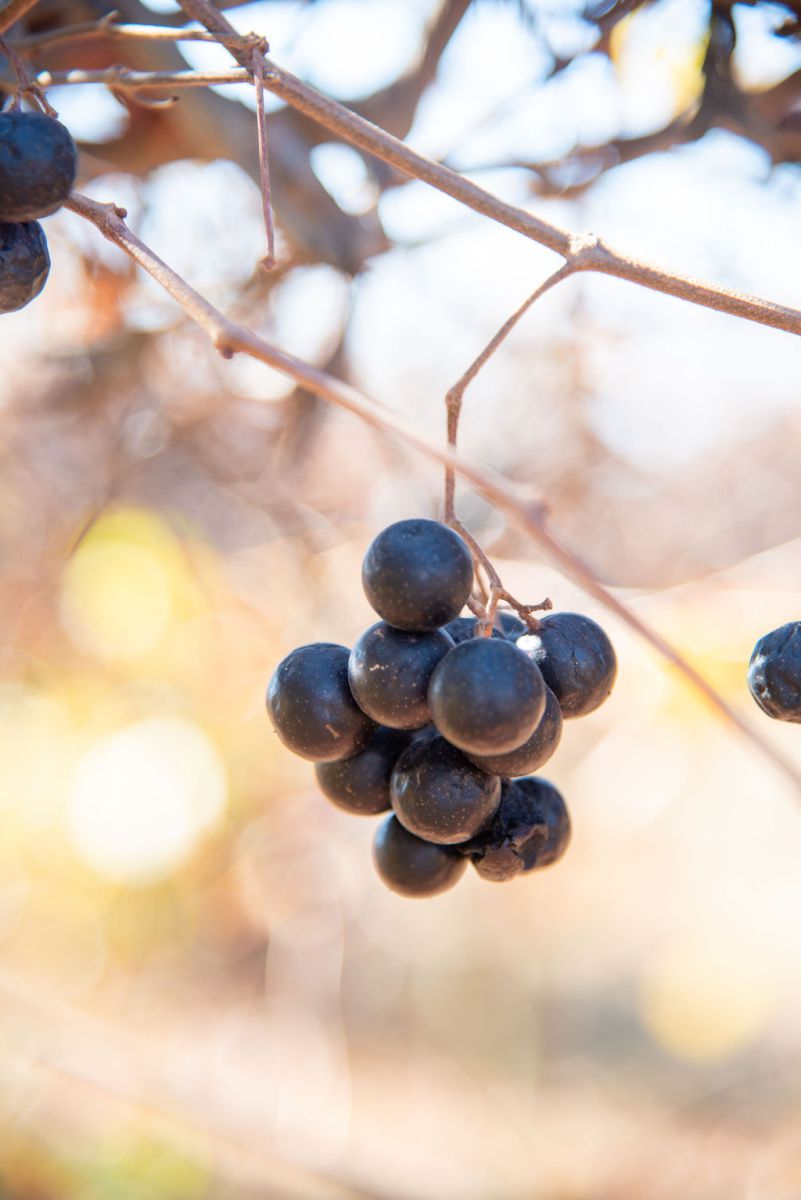
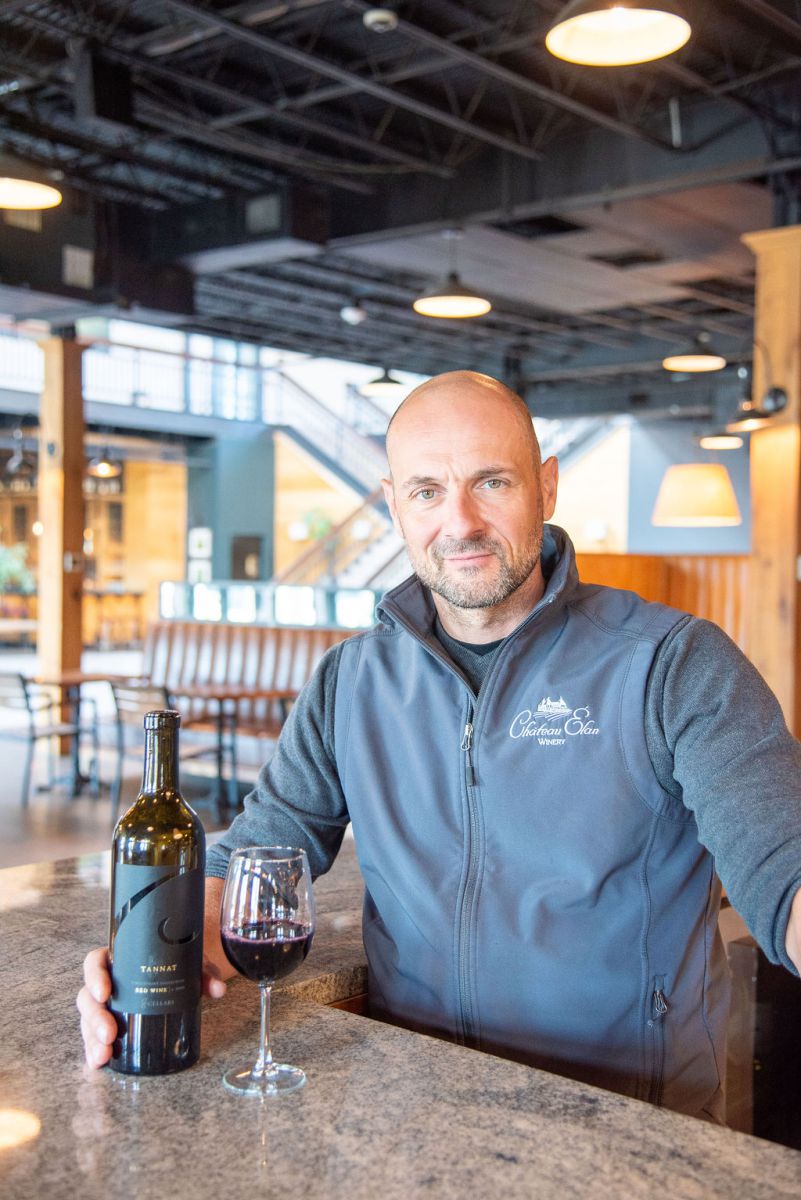
Bergese, the Executive Winemaker & Winery CEO at Chateau Elan Winery in Braselton, grew up in Italy. He got a degree in viticulture and has been working in the wine industry for more than 25 years. He was recruited by Chateau Elan in 2012 to elevate their wine production.
“The first thing I did was evaluate the vineyard, where they grew classic grape varieties. It looked alive but it was in bad shape and not able to produce,” said Bergese. “I started learning about muscadines and once I realized how amazing the link between the variety and the territory was, it was an instant decision about what to grow.”
Because muscadines are native to Georgia, they are resistant to our diseases and pests.
“The native variety means that the grape is completely adapted to the land — and that’s a special link. You have a variety that can survive any parasite in any condition in its native land,” Bergese said. “It’s bulletproof. If you take that subject and convert it into good quality wine, there’s nothing more you have to do.”
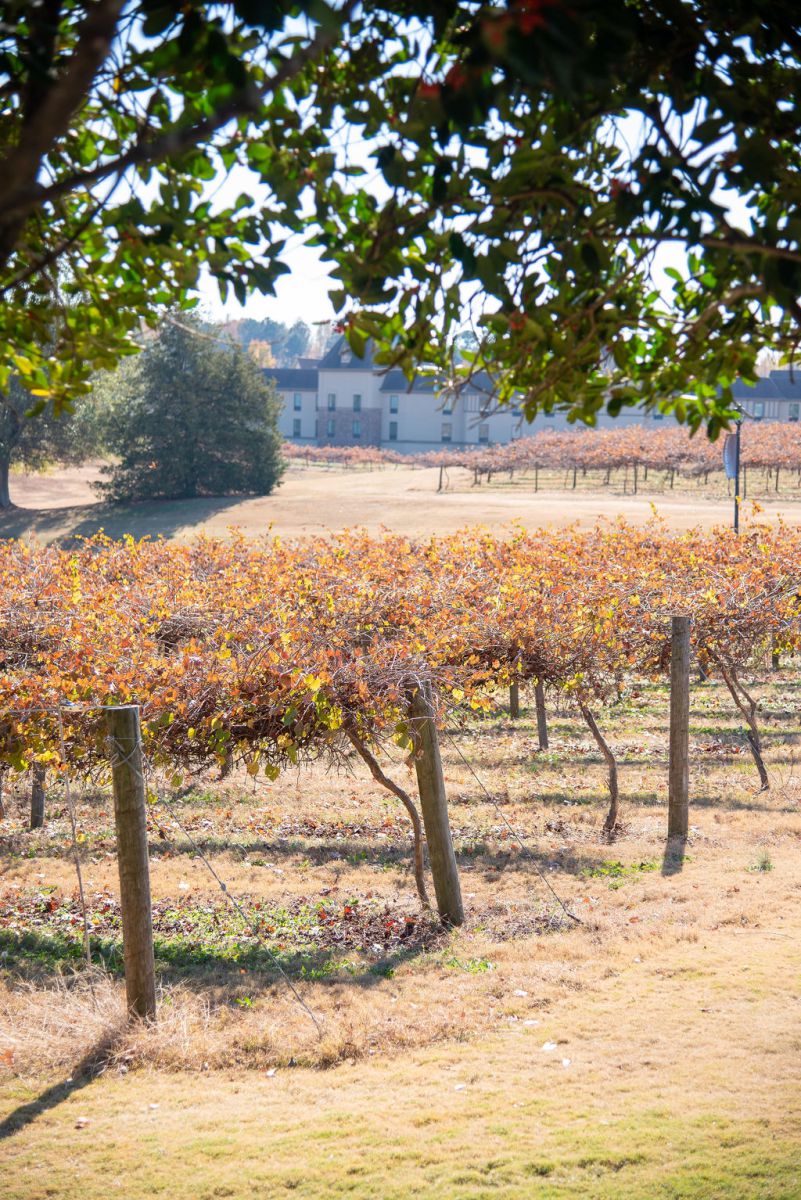
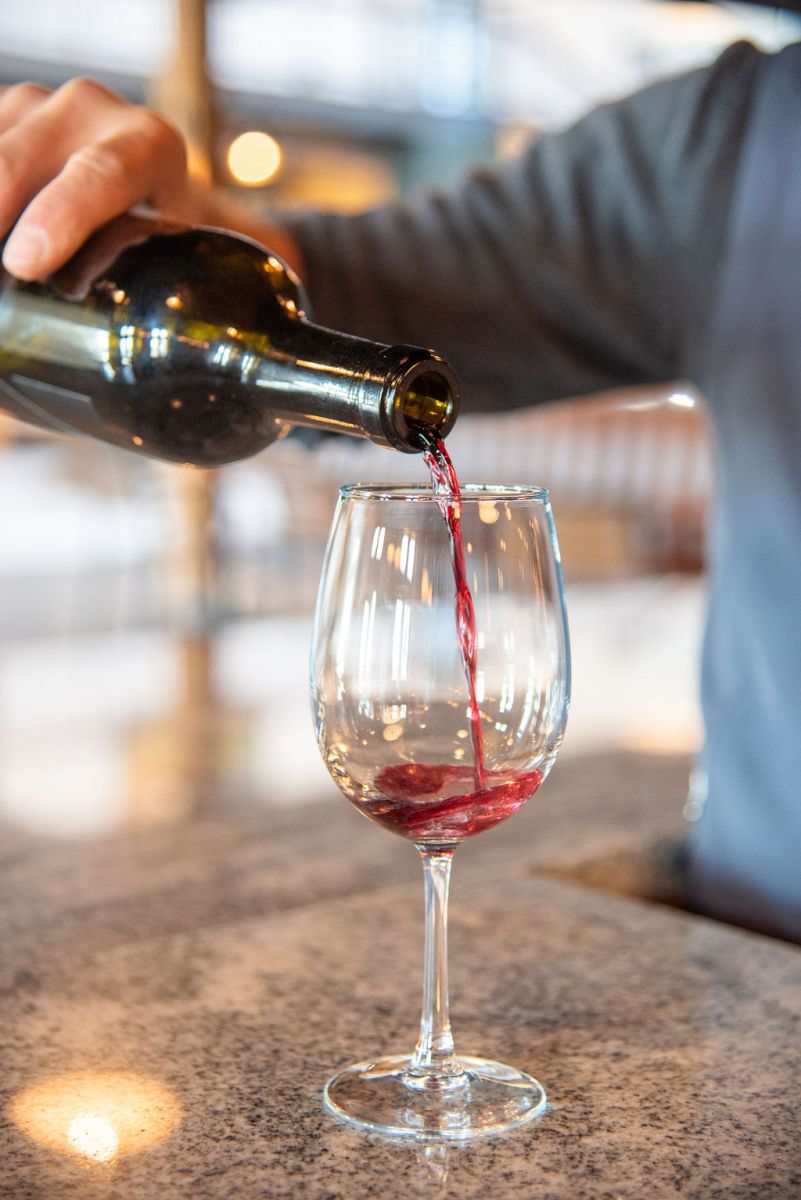
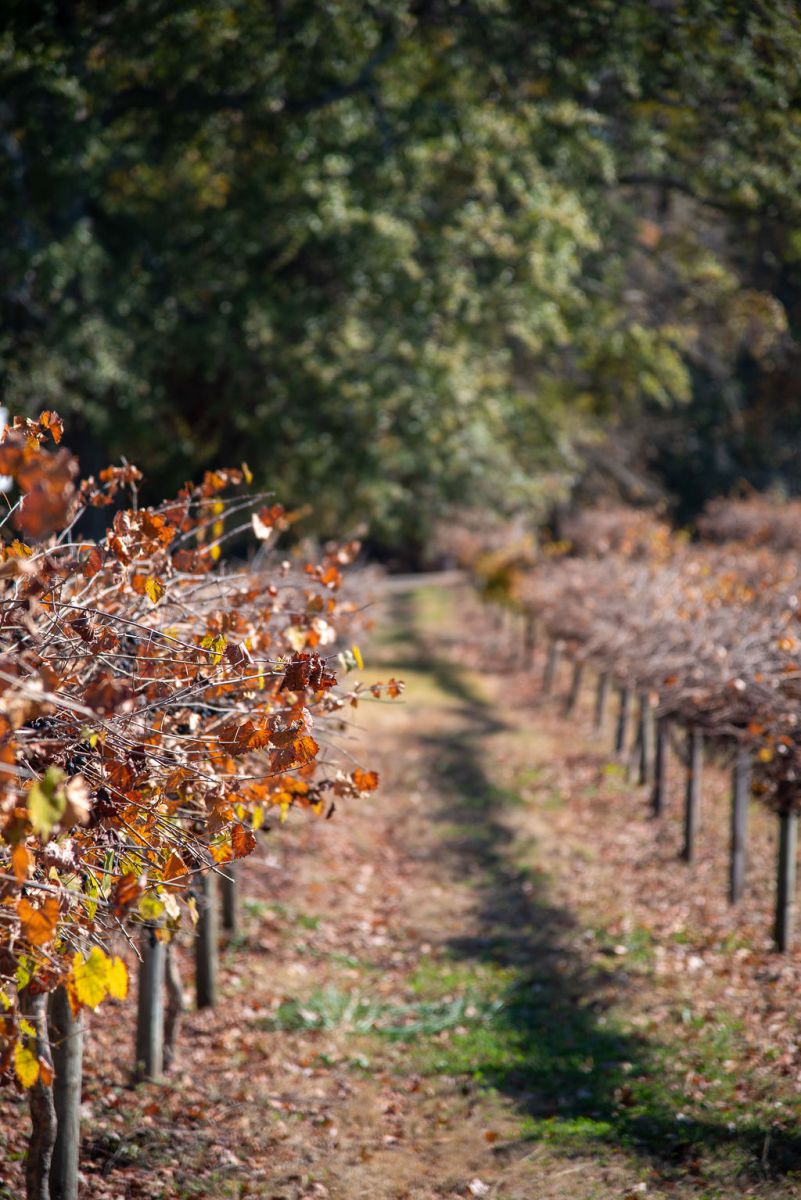
The growth of the vineyard since Bergese joined is a testament to that. A production of 7,000 cases has grown to 45,000 cases and the primary grape used is muscadine. Other non-muscadine grapes are imported from California to be used in blended wines.
“This success is because of the good choices we made regarding farming and nature. What is meant to be, we did without forcing anything. That paid off into a wine program that is now very well-known and respected in the industry and we hope is an inspiration to new farmers,” he said.
With only 10 percent of Chateau Elan’s muscadines grown on site, the majority are sourced from Georgia farmers — the largest of which is Paulk Vineyards in Irwin County.
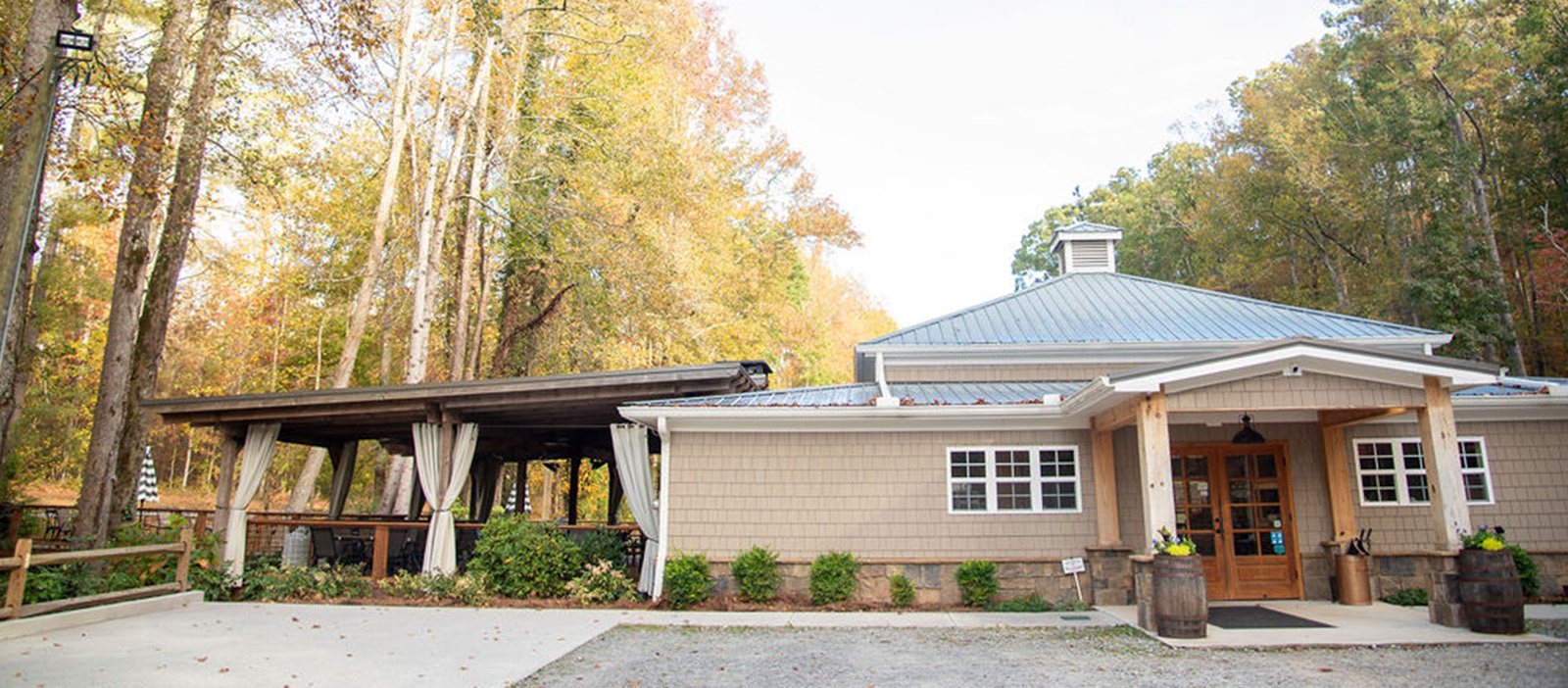
Trillium Vineyard
Bruce Cross and his family have sought to diversify farming by growing grapes at Trillium Vineyard in Bremen.
“We used to breed alpacas on 15 acres of land. We didn’t have enough alpacas to eat all the grass, and so I had to bush hog it. We knew we needed to do something more productive and to be better stewards of the land, so I looked at orchard fruits, pecans and grapes,” said Cross, owner of Trillium.
The family planted 2 acres of grapes in 2013. By 2015, the crop yielded 10 tons of grapes and they decided to go all-in with a vineyard.
However, unlike Paulk Vineyards and Chateau Elan, Trillium doesn’t grow muscadines. They prefer French-American hybrid grapes.
“We’re too far south for classic European grapes. It’s not the heat — it’s the insects. Standard French grapes can’t withstand our Georgia pests,” he said.
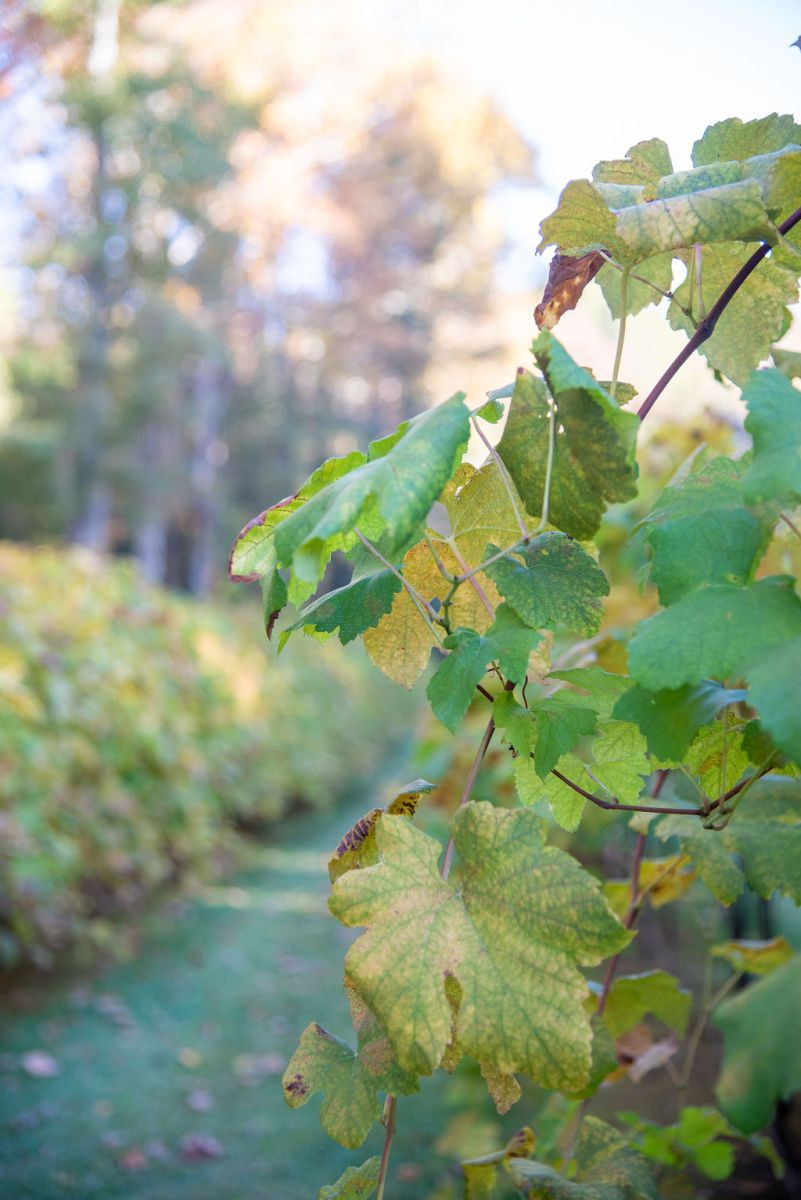
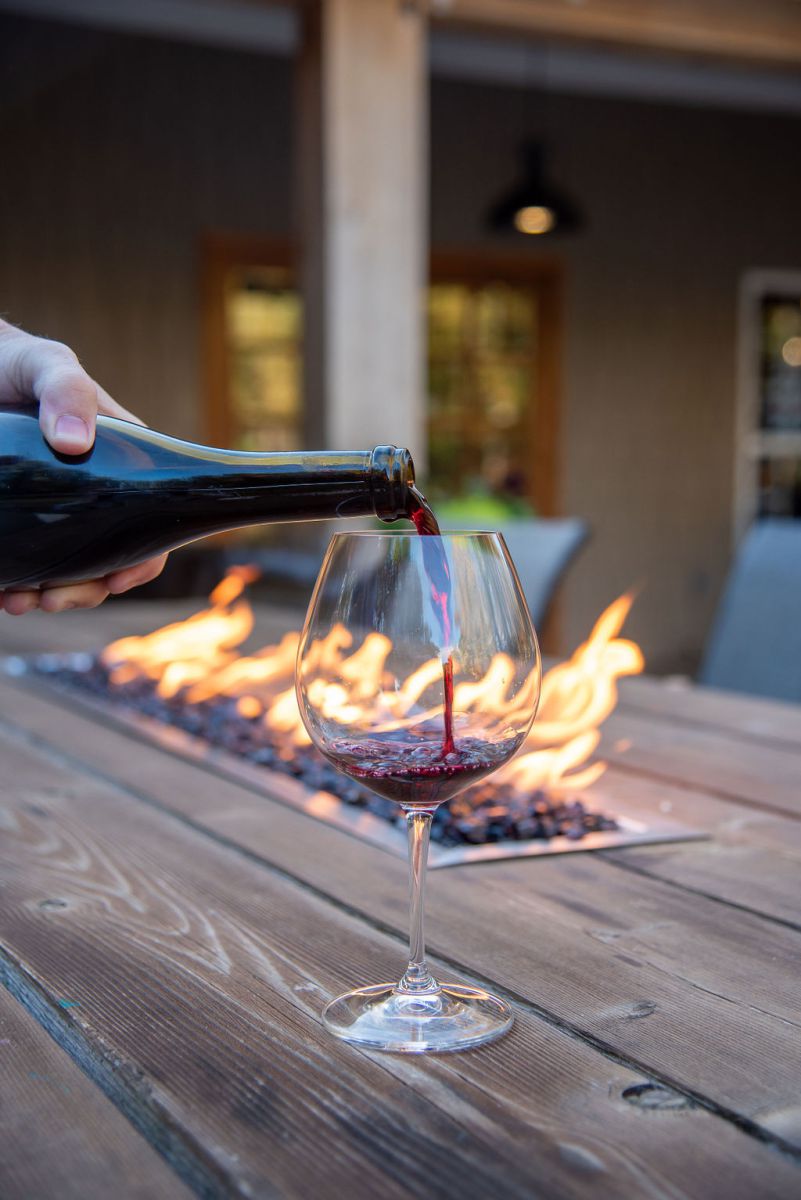
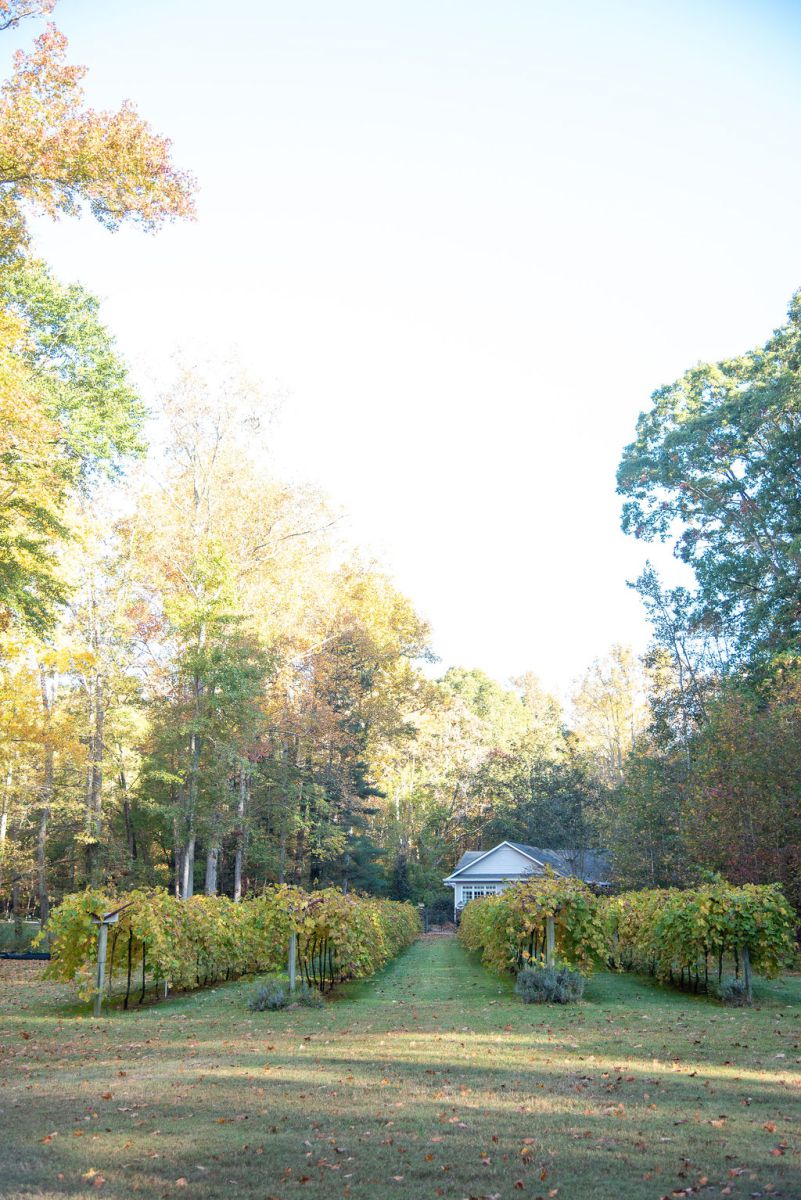
The hybrid grape Blanc du Bois was developed in 1987 at the University of Florida. It was created to withstand Pierce’s Disease, a bacterial infection. Trillium grows Blanc du Bois along with another popular white grape grown in the U.S., Villard Blanc. For red grapes, they grow Norton, which was developed in Virginia, and Lenoir, brought to Savannah from France in the 1800s.
“Because of where we live, humidity is our biggest threat. We have to watch out for fungal infections on the plants. Fortunately, these varieties are disease resistant, but downy mildew is a threat,” he said.
When it comes to their choice of grapes, in addition to working with Mother Nature and our variable Georgia climate, Cross said taste rules.
“We’ve found with wine making, we have the most fun blending grapes to get flavors that have greater appeal,” said Cross. “Your palette is the key. Everyone has a different sense of what they like.”
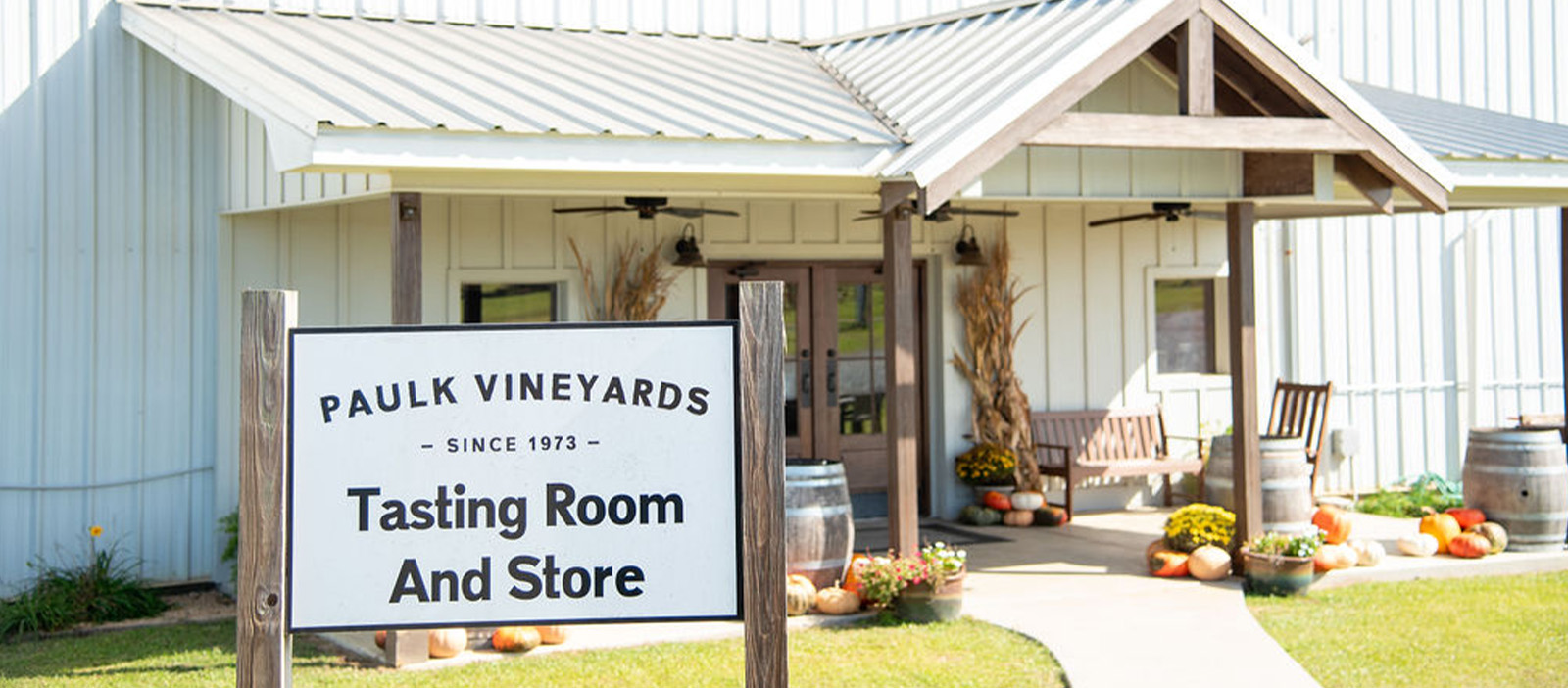
Paulk Vineyard
The Paulk family has farmed their land in Wray for six generations. Up until 1970, they grew mostly row crops. When it came time to try something different, “Papa” Jacob Paulk reached out to his local UGA Extension office for ideas.
“He wanted to know what fruit would grow well here — something that wouldn’t go against Mother Nature. They told him muscadines,” said Chris Paulk, vineyard CEO and grandson of Papa Jacob.
Papa Jacob realized the health benefits of muscadines and started selling the seeds and skins in health powders and tonics.
“Muscadines are very healthy for you. They’re higher in antioxidants than any other grape, have anti-inflammatory benefits and are good for brain and joint health,” Paulk said. “In order to get the seeds and skins, he pressed the juice, bottled it and made jellies. Over time, other wineries wanted muscadine juice, so we sold it to them.”
The business grew, and with 800 acres of muscadines, Paulk Vineyard is now the largest grower of muscadines in the world.
In 2017, the family decided to explore another avenue for muscadine production — wine. Paulk took an online class and did some industry research. What he found was that they were on the right track with muscadines.
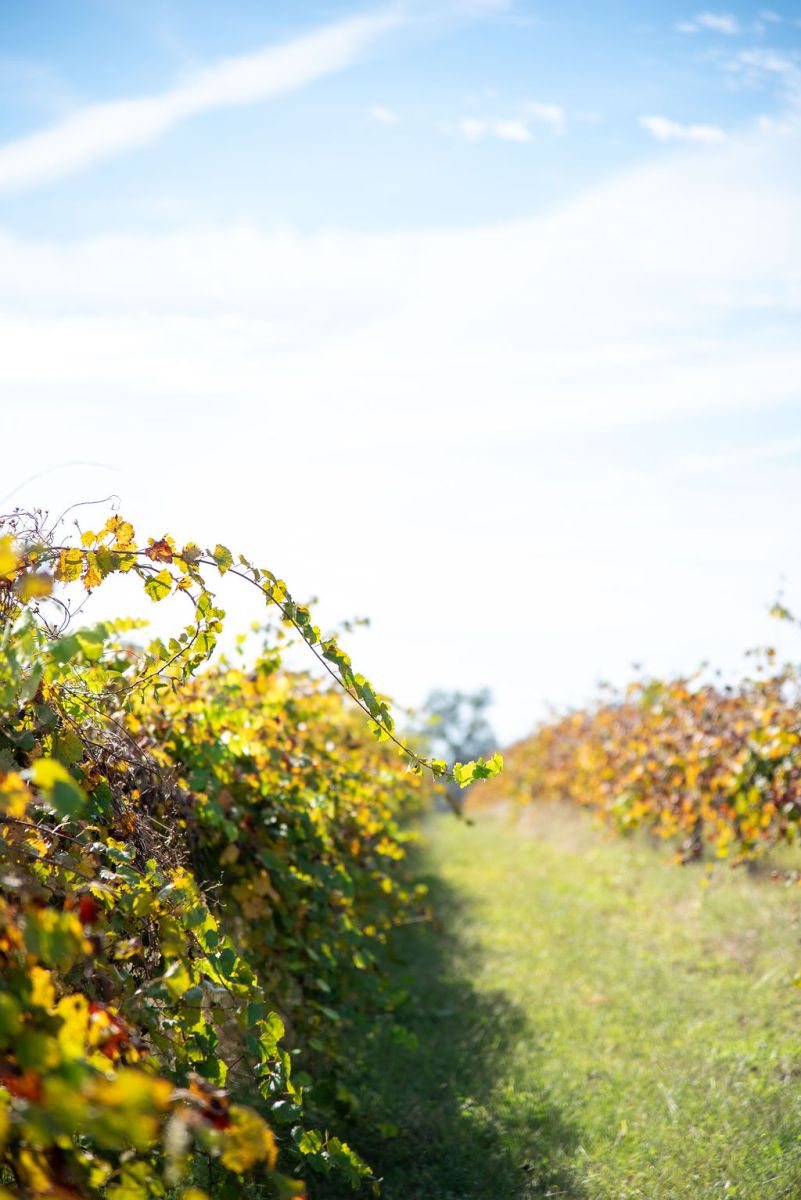
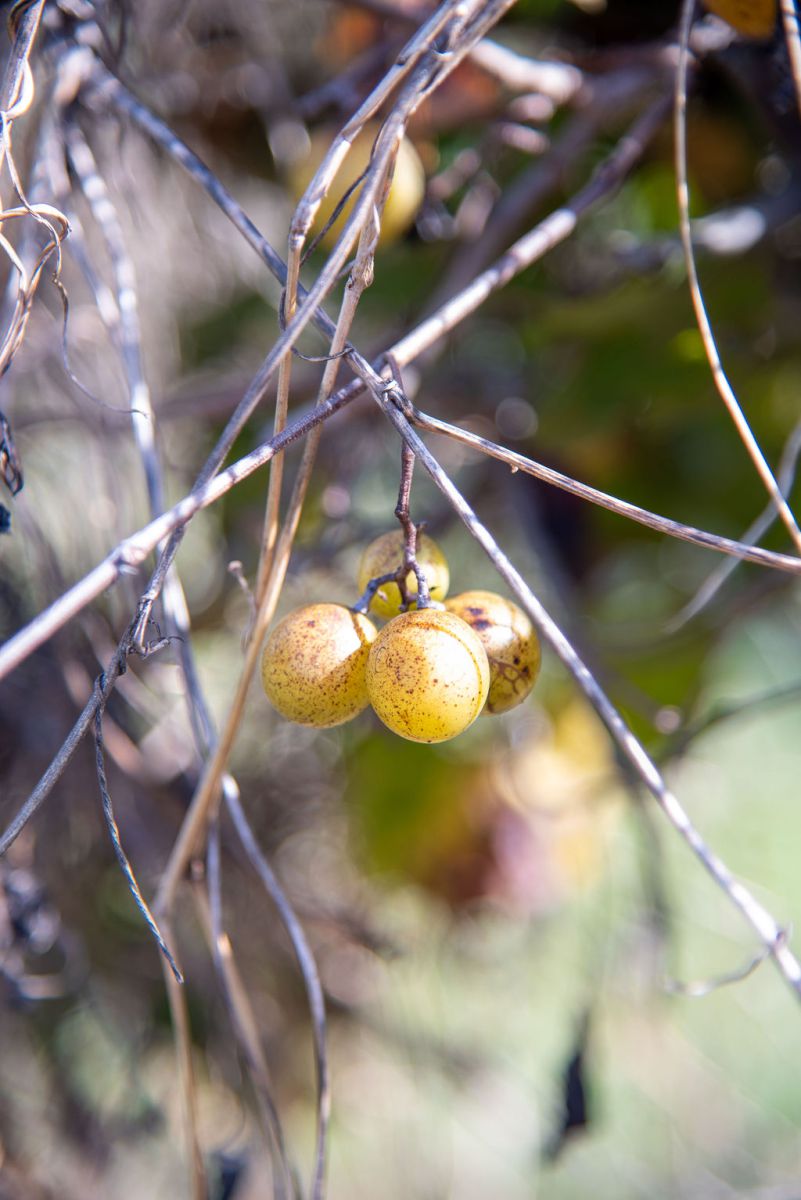
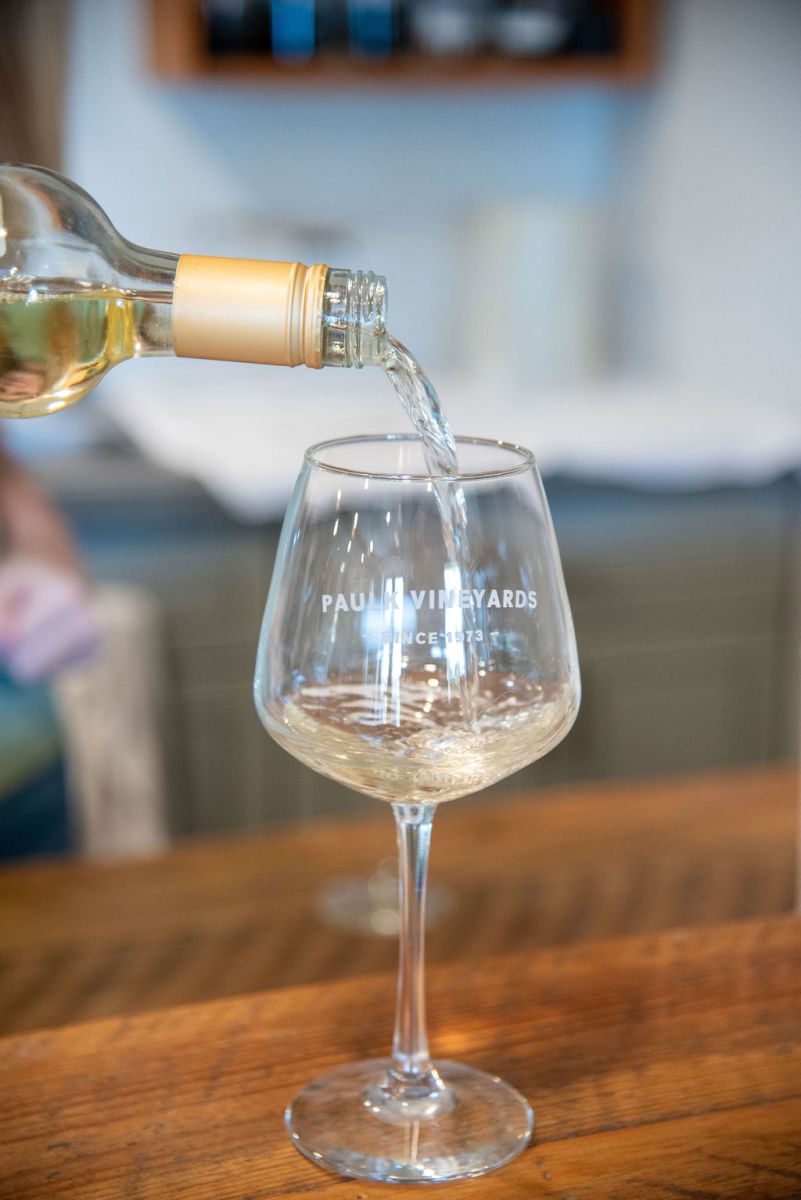
“Muscadines do so well here because they are a native, Southern grape — and no other grape is. You won’t find them tolerating cold, and other grapes can’t survive the heat. We have diseases that would wipe out other types of grapes, but not muscadines. They grow wild all around us,” Paulk said.
Like his grandfather, Paulk turned to UGA for advice on growing practices, when to fertilize and what pesticides to use — if any.
“We’ve worked with UGA for years. They have the oldest muscadine breed in the country. They even released a new variety four years ago and named it Paulk in memory of my grandfather,” he said.
Vineyard Knowledge
To learn more about wine production, check out UGA’s Cortona Viticulture & Enology program co-taught by professors from the Departments of Horticulture, Plant Pathology and Food Science & Technology. The program takes place in Cortona, Italy. Visit cortona.uga.edu/programs for information.